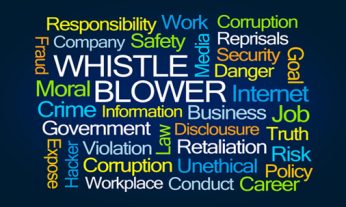 Individuals and families often have legitimate medical issues that lead to a request for time off of work. The federal Family and Medical Leave Act (FMLA) and the state’s California Family Rights Act (CFRA) lay out the responsibilities of employers (applicable to those with 50 or more employees) when it comes to family, medical, and/or parental leave. While the leave may be unpaid, it is job-protected time off. In the majority of situations, employees must be allowed to return to their previous position or an equivalent position as it relates to pay, benefits, working conditions, status, and fringe benefits. Crucially, employees are entitled to request and take leave without fear of retribution from employers.
Individuals and families often have legitimate medical issues that lead to a request for time off of work. The federal Family and Medical Leave Act (FMLA) and the state’s California Family Rights Act (CFRA) lay out the responsibilities of employers (applicable to those with 50 or more employees) when it comes to family, medical, and/or parental leave. While the leave may be unpaid, it is job-protected time off. In the majority of situations, employees must be allowed to return to their previous position or an equivalent position as it relates to pay, benefits, working conditions, status, and fringe benefits. Crucially, employees are entitled to request and take leave without fear of retribution from employers.
FMLA – Employee Rights
Eligible employees are entitled to as much as 12 weeks of leave annually. This leave may be taken to deal with an array of issues, including:
- Personal illness;
- Caring for a family member who is ill;
- Bonding with a newborn baby, a child who has been adopted, or a foster child;
- A family member’s military service when associated with a qualifying exigency (FMLA provides 26 weeks to care for service members who have been injured).
Pregnancy Disability – FMLA
California’s CFRA laws apply to employers with five or more employees, and provide eligible employees as much as four months of pregnancy disability leave (PEL). This is in addition to FMLA bonding time.
When FMLA and CFRA Laws are Ignored
Failure to adhere to state and federal laws regarding leave is one of the most common reasons employees seek redress through civil lawsuits. In particular, retribution from irked employers gets them into trouble. Consider the case of Maria Salgado:
When Maria Salgado was called “psychotic” and “psycho” by a coworker, it understandably added to her stress at work. This was not helpful, especially since she suffered from anxiety and depression before the harassment began. Notably, the name-calling occurred shortly after Salgado informed her supervisor of her mental health status. Could the supervisor have breached ethical and legal boundaries by sharing this confidential information with Salgado’s co-worker? If so, it would be the latest in a long list of harassment experienced by Salgado at the hands of her supervisor, including:
- Objections for taking time off to deal with medical issues related to an injury, diabetes, and mental health problems;
- Disciplinary action related to Salgado’s providing less than 24-hour notice prior to taking sick days or medical leave;
- Confrontations and berating for expressing concerns in an open meeting hosted by the union to deal with medical leave issues;
- Retaliating by insisting that Salgado be fired after three tardies totaling 13 minutes;
- Failing to address co-worker harassment that occurred in the presence of the supervisor.


